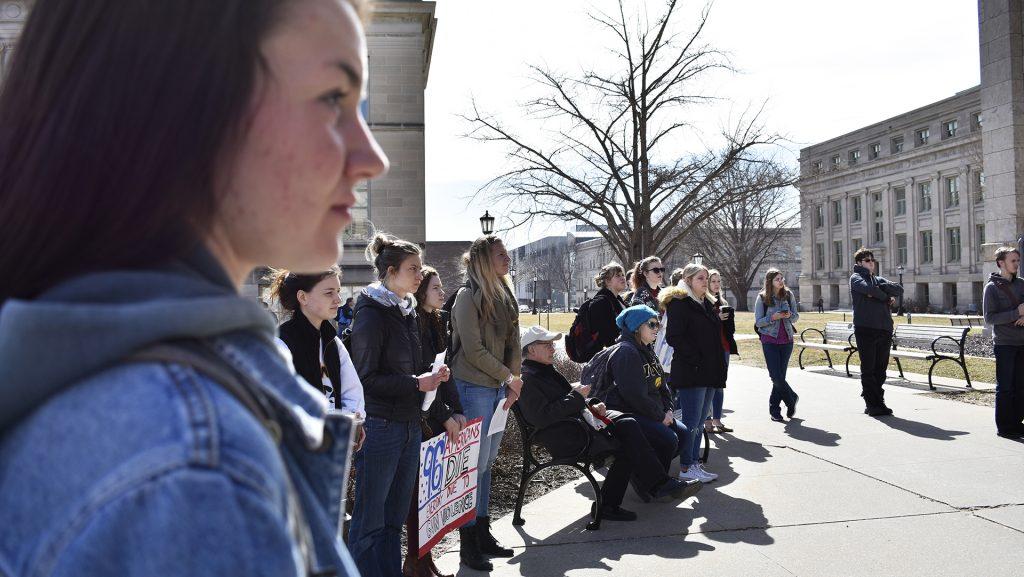Iowa politicians at the federal and state level are encouraging people to “See Something, Say Something” to prevent gun violence.
In February, Gov. Kim Reynolds announced a campaign in which Iowa agencies, including the Departments of Homeland Security, Emergency Management, and Public Safety, will partner to educate people about the importance of reporting suspicious activity.
Reports emerged after the shooting in Parkland, Florida, that before the shooting, the FBI received tips that it failed to properly act upon. On two separate occasions, the agency received tips that Nikolas Cruz, the alleged shooter, desired to carry out a shooting, had violent tendencies, and could access a firearm.
“There are things we all can do to increase the safety of our communities, state and nation,” Reynolds said in a statement. “We are asking all Iowans to pay attention to their surroundings, and if they see something that looks suspicious, to report it to local law enforcement or call 911.”
RELATED: Thoughts and prayers once again after Parkland shooting. Now what?
Iowa City police Sgt. Derek Frank said there are no specific instructions that have been communicated to the police with the campaign, but the officers continue to take every call seriously and don’t ignore any tips.
“One of the things that we always say … is that things don’t get better on their own,” he said. “If somebody doesn’t intervene in some way, then don’t expect for this violent person to just stop or get better on their own.”
It’s possible to predict violence, Iowa State University psychology Professor Douglas Gentile said, but there are numerous causes that people don’t recognize when factors such as mental health are used in isolation to explain why a person committed an act of violence. This makes it hard for someone to see when they need to be treated for mental health, he said.
“By linking mental health with things like mass murders, that makes people think, ‘Oh, that’s the line,’ ” he said.
This line of thinking is harmful to finding productive solutions through legislation or other means, Gentile said.
“The problem is after something that we can’t explain like a terrible tragedy, we always want some certainty like a single reason,” he said. “We need to broaden that thinking if we want the answers to actually start being more effective.”
RELATED: Iowa City students and community respond to Parkland mass shooting
With these connections being made between aggression and mental illness, Frank said he hopes people aren’t quick to stigmatize those dealing with mental illnesses.
“I would hope that everybody wouldn’t attach the label of violence to anybody that has mental illness,” he said. “I think we’re trying to get to a day and an age where people could talk to mental illness just as they talk about physical illness.”
Gentile said policy is a matter of balancing certain interests, whether that be the safety of the country’s citizens or the gun lobby. There’s not going to be a solution that everyone likes, he said, but it’s a matter of putting safety above certain freedoms.



